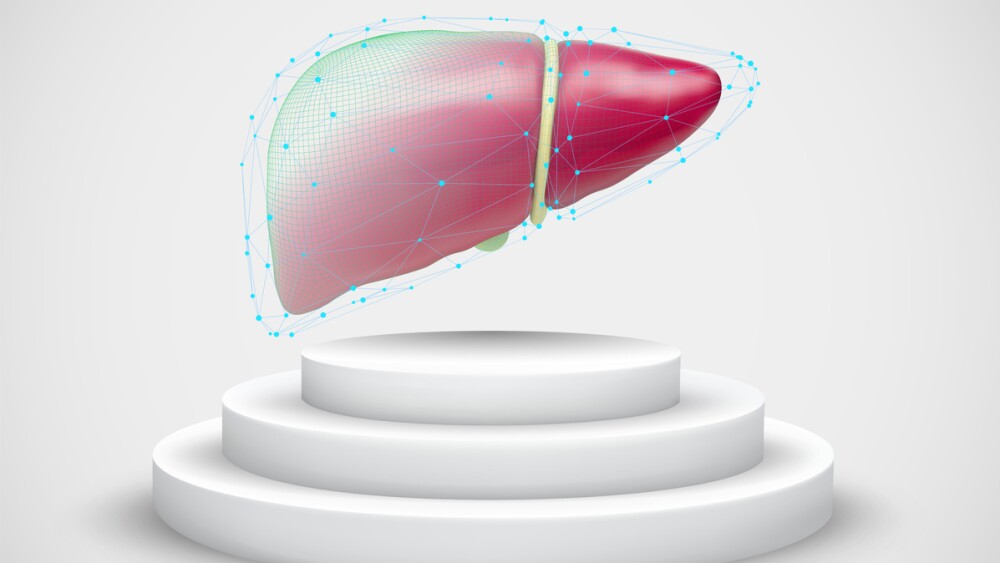DENVER--(BUSINESS WIRE)--April 10, 2006--Myogen, Inc. (Nasdaq: MYOG - News) today announced positive top line results of the ARIES-1 trial, the second pivotal Phase 3 trial evaluating ambrisentan, an oral endothelin receptor antagonist (ERA), in pulmonary arterial hypertension (PAH). The trial met the primary efficacy endpoint of improved exercise capacity for both ambrisentan dose groups, with an excellent safety profile and no observed liver function abnormalities in the ambrisentan treatment groups. On the basis of the results of ARIES-1 & -2, Myogen expects to submit the ambrisentan New Drug Application to the U.S. Food and Drug Administration (FDA) in the fourth quarter of 2006.
The primary efficacy endpoint of the ARIES-1 trial was the placebo-corrected mean change in six-minute walk distance (6MWD) at week 12 compared to baseline. Results of the trial demonstrated that with once-daily dosing, 10 mg of ambrisentan improved the placebo-corrected mean 6MWD by 51.4 meters (p=0.0001) and 5 mg of ambrisentan improved the placebo-corrected mean 6MWD by 30.6 meters (p=0.0084), indicating improved exercise capacity. For the placebo group, the mean 6MWD at week 12 decreased from baseline by 7.8 meters. Time to clinical worsening did not reach statistical significance likely due to the relatively low incidence of clinical worsening events observed in the trial. Other secondary endpoints had clinically relevant improvements that achieved p values of less than 0.05 but were not considered statistically significant due to the pre-specified approach for multiple comparisons.
The trial safety results demonstrated ambrisentan was generally well tolerated. The most frequent adverse event was peripheral edema. No patients treated with ambrisentan developed serum aminotransferase concentrations greater than three times the upper limit of the normal range at any time during the 12 week treatment period, compared to two patients in the placebo group, only one of which was confirmed upon re-test. Ambrisentan had no apparent effect on the activity or dosing of warfarin-type anticoagulants commonly co-administered to patients with PAH.
The delivery of the ARIES-1 trial results triggers a $5.25 million milestone payment under Myogen's ambrisentan sublicense agreement with GlaxoSmithKline.
"With two positive, well-controlled studies demonstrating robust efficacy and a safety database of more than 400 patients on long-term treatment, we have the foundation for high quality regulatory submissions worldwide," said Dr. Michael Gerber, Senior Vice President of Clinical Development and Regulatory Affairs for Myogen. "Based on the properties of ambrisentan and the clinical results obtained to date, we believe that, if approved, ambrisentan has the potential to offer significant advantages over other endothelin receptor antagonists for the treatment of PAH."
In January 2004, Myogen announced the initiation of two pivotal Phase 3 clinical trials, ARIES-1 and ARIES-2, evaluating the safety and efficacy of ambrisentan in patients with PAH. The ARIES trials were randomized, double-blind, placebo-controlled trials of identical design except for the doses of ambrisentan studied and the geographic locations of the investigative sites. Both trials were designed to enroll 186 patients (62 patients per dose group). ARIES-1 evaluated once-daily doses of 5 mg and 10 mg of ambrisentan. ARIES-2 evaluated once-daily doses of 2.5 mg and 5 mg of ambrisentan. The primary efficacy endpoint was exercise capacity, measured as the mean change from baseline at 12 weeks in the 6MWD compared to placebo. Secondary endpoints include time to clinical worsening, World Health Organization (WHO) functional class, SF-36(TM) Health Survey, and Borg dyspnea index. ARIES-1 enrolled 202 patients primarily from the United States while ARIES-2 enrolled 192 patients primarily from Europe. In addition, approximately 400 patients continue ambrisentan treatment in long-term trials with maximum exposure of more than three years.
To date, the results of clinical studies have indicated that ambrisentan may provide some or all of the following benefits to PAH patients:
Improvement in exercise capacity that is significant, early in onset and durable Significant improvement in time to clinical worsening Low incidence and severity of liver function test abnormalities at all doses treated Comparable benefit in exercise capacity in patients with WHO functional class II and class III symptoms An apparent survival benefit when compared with predicted survival based on the National Institutes of Health Registry formula Effectiveness with once-daily dosing and the potential for dose flexibility Potential utility in resuming endothelin receptor antagonist (ERA) treatment in patients who have discontinued treatment with the alternative ERAs, bosentan or sitaxsentan, or both, due to liver function abnormalities No clinically relevant drug-drug interactions with warfarin-type anticoagulants or sildenafil, a PDE-5 inhibitor About Pulmonary Arterial Hypertension
PAH is a highly debilitating disease characterized by severe constriction of the blood vessels in the lungs leading to very high pulmonary arterial pressures. These high pressures make it difficult for the heart to pump blood through the lungs to be oxygenated. Patients with PAH suffer from extreme shortness of breath as the heart struggles to pump against these high pressures causing such patients to ultimately die of heart failure. PAH can occur with no known underlying cause, or it can occur secondary to diseases such as connective tissue disease, congenital heart defects, cirrhosis of the liver and HIV infection. PAH afflicts approximately 200,000 patients worldwide.
About Ambrisentan
Ambrisentan is an investigational drug being developed as a once daily oral therapy for patients with PAH and has been granted orphan drug designation for the treatment of PAH in both the United States and European Union. GlaxoSmithKline sublicensed commercial rights for ambrisentan outside of the United States.
Ambrisentan is a non-sulfonamide, propanoic acid-class, type-A selective endothelin receptor antagonist. Endothelin is a small peptide hormone that plays a critical role in the control of blood flow and cell growth. Elevated endothelin blood levels are associated with several cardiovascular disease conditions, including pulmonary arterial hypertension, chronic renal disease, coronary artery disease, hypertension and chronic heart failure. The Company believes that agents that block the detrimental effects of endothelin may provide significant benefits in the treatment of these conditions.
Conference Call
J. William Freytag, President and CEO, and other members of Myogen's senior management will discuss the ARIES-1 top line results via webcast and conference call on Monday, April 10, 2006 at 8:30 am Eastern. To access the live webcast, please log on to the Company's website at www.myogen.com and go to the Investor Relations section. Alternatively, callers may participate in the conference call by dialing 800-219-6110 (domestic) or 011-1-303-262-2194 (international). Webcast and telephone replays of the conference call will be available approximately two hours after the completion of the call through Friday, April 28, 2006. Callers can access the replay by dialing 800-405-2236 (domestic) or 011-1-303-590-3000 (international). The passcode is 11058293#.
About Myogen
Myogen is a biopharmaceutical company focused on the discovery, development and commercialization of small molecule therapeutics for the treatment of cardiovascular disorders. Myogen currently has two product candidates in late-stage clinical development: ambrisentan for the treatment of patients with pulmonary arterial hypertension and darusentan for the treatment of patients with resistant hypertension. Myogen and GlaxoSmithKline have entered into a global PAH partnership in which Myogen has distribution and marketing rights to GlaxoSmithKline's Flolan (epoprostenol sodium) in the United States for the treatment of PAH and GlaxoSmithKline has sublicensed ambrisentan from Myogen for all territories outside of the United States. Myogen also conducts a target and drug discovery research program focused on the development of disease-modifying drugs for the treatment of chronic heart failure and related cardiovascular disorders. Please visit Myogen's website at www.myogen.com.
About Flolan (epoprostenol sodium)
Flolan was approved by the FDA in 1995 and is indicated for the long-term intravenous treatment of primary pulmonary hypertension and pulmonary hypertension associated with the scleroderma spectrum of disease in NYHA Class III and Class IV patients who do not respond adequately to conventional therapy. Use of Flolan is contraindicated in patients with congestive heart failure due to severe left ventricular systolic dysfunction. Flolan should not be used in patients who develop pulmonary edema during dose initiation. Flolan is also contraindicated in patients with known hypersensitivity to the drug or structurally related compounds. Flolan should be used only by clinicians experienced in the diagnosis and treatment of pulmonary hypertension. The diagnosis of PPH or PH/SSD should be carefully established. Please consult complete prescribing information for Flolan at www.gsk.com.
Safe Harbor Statement
This press release contains forward-looking statements that involve significant risks and uncertainties, including summary statements relating to the top line results of the Company's ARIES-1 clinical trial, summary statements relating to the results of the Company's Phase 2 trial of ambrisentan in patients with PAH and the related extension trial, and summary statements relating to the potential efficacy and safety profile of ambrisentan. Actual results could differ materially from those projected and the Company cautions investors not to place undue reliance on the forward-looking statements contained in this release.
Top line results may not be confirmed upon full analysis of the detailed results of a trial and additional information relating to the safety, efficacy or tolerability of the Company's product candidates, including ambrisentan, may be discovered upon further analysis of trial data and upon review and analysis of additional trial data, including data from the Company's ongoing extension trials of ambrisentan in patients with PAH. If the Company's product candidates do not meet safety or efficacy endpoints in clinical evaluations, they will not receive regulatory approval and the Company will not be able to market them. Even if the Company's product candidates meet safety and efficacy endpoints, regulatory authorities may not approve them, the Company may not be able to successfully market them, or the Company may face post-approval problems that require the withdrawal of its product from the market. There can be no assurance that Myogen's product candidates, including ambrisentan, will be proven safe and effective for use in humans. Abnormal elevations of liver function test results, including elevated serum aminotransferase concentrations, have been reported in a Phase 2 trial of ambrisentan and in trials of other endothelin receptor antagonists. The Company's results may be affected by its effectiveness at managing its financial resources, its ability to successfully develop and market its product candidates, competition from other biotechnology and pharmaceutical companies, difficulties or delays in manufacturing its products, and regulatory developments involving current and future products. Delays in regulatory approvals or in initiating or conducting clinical trials, whether caused by regulatory issues, competition, adverse events, patient enrollment rates or other factors, could adversely affect the Company's financial position and prospects. If the Company is unable to raise additional capital when required or on acceptable terms, it may have to significantly delay, scale back or discontinue one or more of its drug development or discovery research programs. Myogen may not ever have any products that generate significant revenue.
Additional risks and uncertainties relating to the Company and its business can be found in the "Risk Factors" section of Myogen's Form 10-K for the year ended December 31, 2005 and Myogen's reports on Form 10-Q and Form 8-K. It is Myogen's policy to only update or reconfirm its public guidance by issuing a press release or filing a periodic or current report with the Securities and Exchange Commission. The Company generally plans to provide guidance as part of its annual and quarterly earnings releases but reserves the right to provide guidance at different intervals or to revise its practice in future periods. All information in this press release is as of April 10, 2006. Myogen undertakes no duty or obligation to update any forward-looking statements contained in this release as a result of new information, future events or changes in the Company's expectations. The Company also disclaims any duty to comment upon or correct information that may be contained in reports published by the investment community.
Contact: Myogen, Inc. Director, Investor Relations Derek K. Cole, 303-464-3986 derek.cole@myogen.com
Source: Myogen, Inc.




